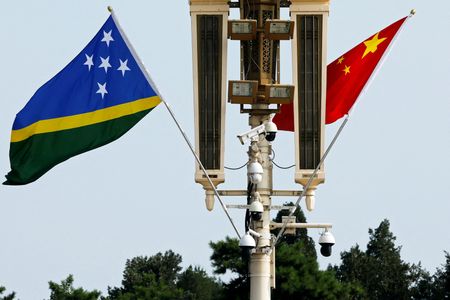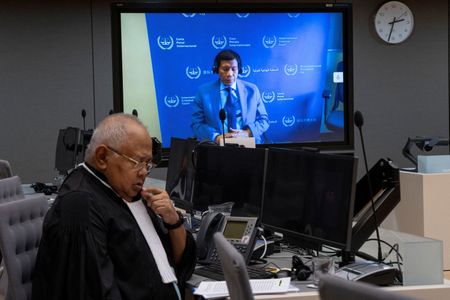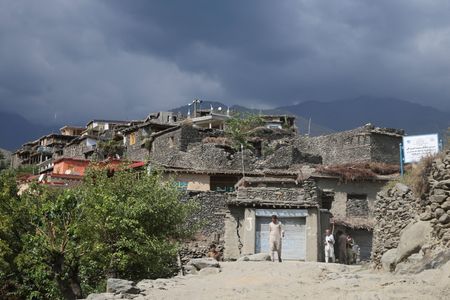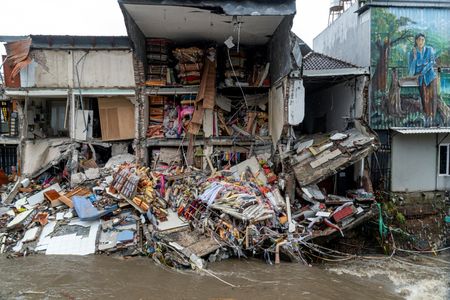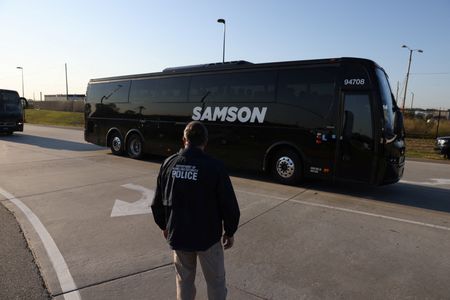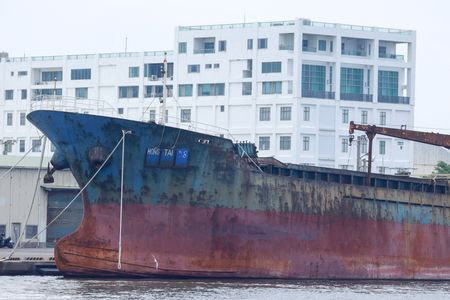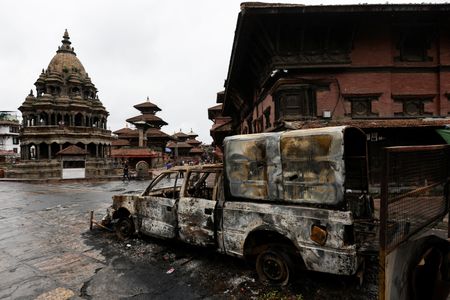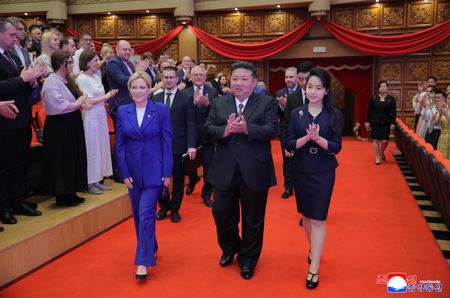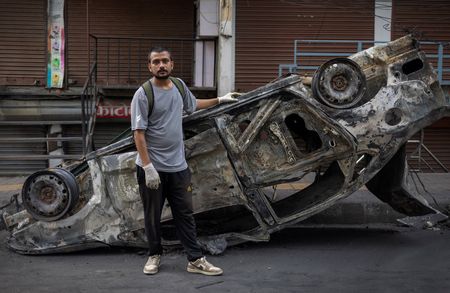By Kirsty Needham
SYDNEY (Reuters) -China has exported its village surveillance model to the Solomon Islands in the Pacific, where Chinese police are piloting fingerprint and data collection to curb social unrest, officials and locals confirmed to Reuters.
China’s “Fengqiao” monitoring model — started under Mao Zedong in the 1960s to help communities mobilise against reactionary “class enemies” — has been reinvigorated by Chinese President Xi Jinping to ensure stability in local communities.
In the Solomon Islands, a security partner of Beijing, Chinese police have visited several villages this year promoting the Fengqiao concept, familiarising children with surveillance drones by playing games, pictures posted to social media by Solomon Islands police show.
China’s foreign ministry in Beijing did not immediately respond to a request for comment. China’s Pacific envoy in Fiji did not respond to a request for comment.
A grid system operates across Chinese villages with each grid manager responsible for “monitoring blocks of households”, Ben Hillman, Director of the Australian Centre on China in the World at the Australian National University, said.
It was an “ideal mode of governance” for the Chinese Communist Party because “people mobilize in support of the Party’s agenda and monitor each other so that social conflicts can be nipped in the bud before they escalate”, said Hillman.
“It is unusual to see the model promoted outside of China because its operation depends on particular social and political institutions,” he added.
PILOT PROJECT ‘WILL BE EXPANDED’
A community leader in the Solomon Islands, Andrew Nihopara, confirmed to Reuters that the village of Fighter 1 on the fringe of the capital Honiara had begun working with the Chinese police on a Fengqiao pilot, but declined to comment further.
The Royal Solomon Islands Police Force said in a statement this month the Fengqiao model of “grassroots governance” in Fighter 1 would collect population data to improve security.
Chinese police had introduced residents to population management, household registration, community mapping, and the collection of fingerprints and palm prints, the statement said.
“The Fighter One community is the first attempt, and it will be expanded to a larger area across the country in the future,” the statement quoted Chinese police inspector Lin Jiamu as saying, explaining the initiative would enhance safety.
The move has stirred human rights concerns.
“It is an infringement on individual rights that are protected by our constitution and should have come through parliament, through our laws,” opposition party politician Peter Kenilorea said in a telephone interview.
The office of Solomon Islands Prime Minister Jeremiah Manele referred questions to the police, who did not respond to a request for comment.
China’s Ministry of Public Security gave a seminar in February about the Fengqiao Experience in the Solomon Islands, drawing parallels between China’s villages and island social structure, a Chinese embassy post on the Weixin messaging app showed.
RESIDENT SEES ‘A RISE IN LAWLESSNESS’
A resident near Fighter 1, who is familiar with the Fengqiao trial but did not want to be named, told Reuters the community was multi-ethnic and there had been “a rapid deterioration in social order and a rise in lawlessness”.
Traditionally, village elders or chiefs would ensure order and manage how a community operates, but in urban fringe communities with residents drawn from many provinces this system was meeting resistance, he said.
“This might be a stepping stone towards creating order as well as keeping data, which is one thing that is lacking,” the resident said.
Kenilorea said he was concerned it was a step towards an authoritarian system. “There are better ways to manage communities that are impoverished or struggling,” he said.
An Australian academic who is an expert on China’s legal system, but did not want to be identified because they travel regularly to China, said it was the first time they had heard of the Fengqiao model being implemented outside of China.
Chinese police had also promoted Fengqiao when visiting 16 villages in Malaita, the largest Solomon Islands province with a history of anti-China protests, another police statement on social media showed, and a local resident confirmed to Reuters.
China struck a security pact with Solomon Islands in 2022 after anti-government riots in 2021. The protests were fuelled in part by Malaita politicians opposing the Solomon Islands switching diplomatic ties from Taiwan to Beijing.
(Reporting by Kirsty Needham in Sydney; additional reporting by Liz Lee in Beijing, Editing by William Maclean)

